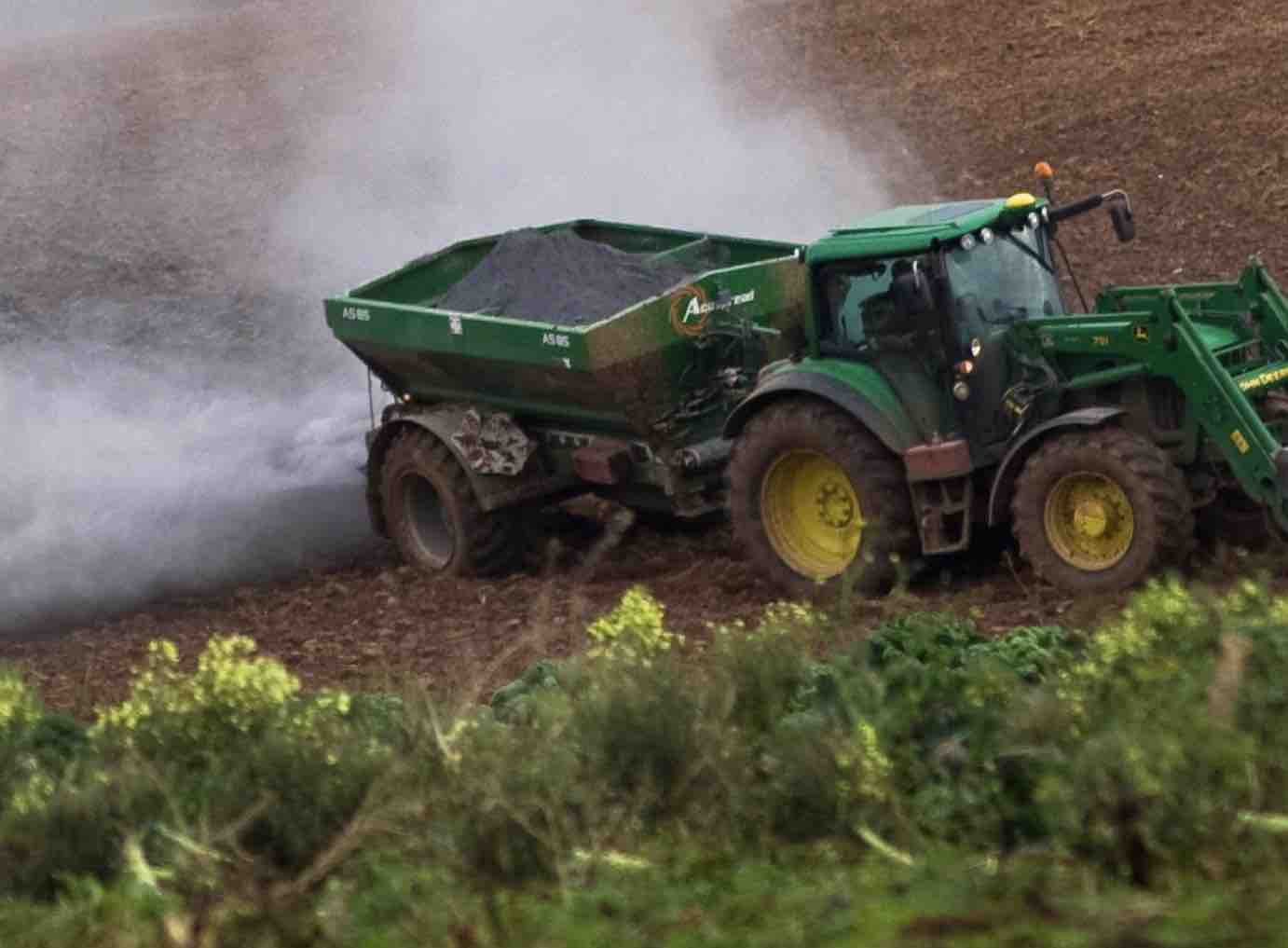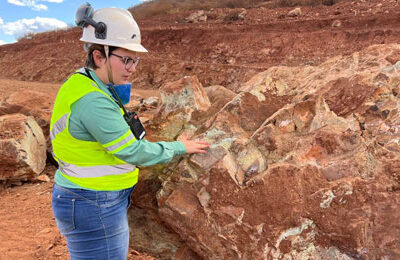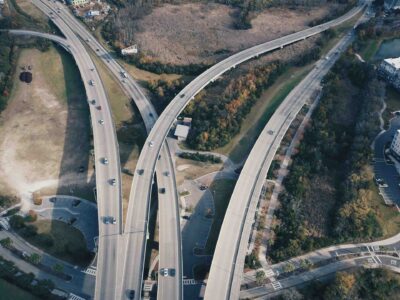(Bloomberg) —
A Stripe-led group that buys carbon removal services has made its biggest bet yet on a small startup that uses crushed rocks to clean the atmosphere.
Alphabet Inc. and JPMorgan Chase & Co. are among the buyers that will pay Lithos Carbon $57.1 million to remove around 154,000 tons of carbon, Frontier announced Thursday. The San Francisco-based startup will pull that amount of carbon dioxide from the atmosphere between 2024 and 2028 using a technique known as enhanced rock weathering (ERW).
The pioneering agreement — with a company less than two years old — is part of a flurry of deals Frontier has announced this year. The group plans to spend about $1 billion on carbon removal services by 2030, with this being its fourth so-called offtake agreement so far. The three other legally binding offtake contracts total nearly $100 million. (Frontier has also made 24 smaller pre-purchase deals and three R&D grants to earlier stage companies.)
A growing number of startups are developing negative-emission technologies that the world is increasingly likely to need in the coming decades in a bid to limit global warming to 1.5C. One of those is the ERW technique used by Lithos, which involves the grinding up of certain types of rocks like basalt and olivine across large areas, including farmland. Those rocks react with rainwater to speed up a natural process of absorbing CO2, which is eventually washed into oceans where it can be stored for centuries or longer. Beyond speeding up carbon removal, the process can rejuvenate depleted soils and reduce acidity, boosting crop yields in the process.
One of the main challenges of ERW is measuring the amount of CO2 actually being removed from the atmosphere given the vast amount of land needed and the distance any trapped carbon travels. Lithos takes what it says is a proprietary approach that tracks the process with a high degree of accuracy. Though the company is still quite young, that’s part of what made Frontier comfortable making such a large investment.
“Lithos has demonstrated an impressive ability to execute,” said Nan Ransohoff, the head of Frontier. “While many other companies focus exclusively on modeling, Lithos relies very heavily on measuring carbon removal using this novel technique that was invented at Yale.”
The company measures the amount of carbon removed by monitoring soil geochemical changes and the gradual disappearance of certain minerals over time.
“We take these soil samples, bring that to our laboratories to understand how fast the rock that we’ve applied is dissolving [and] how fast it is capturing carbon,” Lithos founder and Chief Executive Officer Mary Yap said. The process is repeated every six to seven months to precisely measure changes in soil composition over time, improving estimates for the amount of CO2 removed.
Read more: This Solution to Runaway Emissions Starts With Crushed Rocks
Lithos is currently working with 80 farmers in nine US states to apply its technique in their fields. The contract with Frontier will help the startup grow its partnership with quarries and farmers, Yap said.
ERW could remove up to 2 billion metric tons of CO2 annually, according to research published in Nature in 2020. The technique also holds the promise of capturing CO2 for as low as $80 per ton, a price that would open the door for it being a major climate solution.
To contact the author of this story:
Tope Alake in New York at talake@bloomberg.net
© 2024 Bloomberg L.P.





